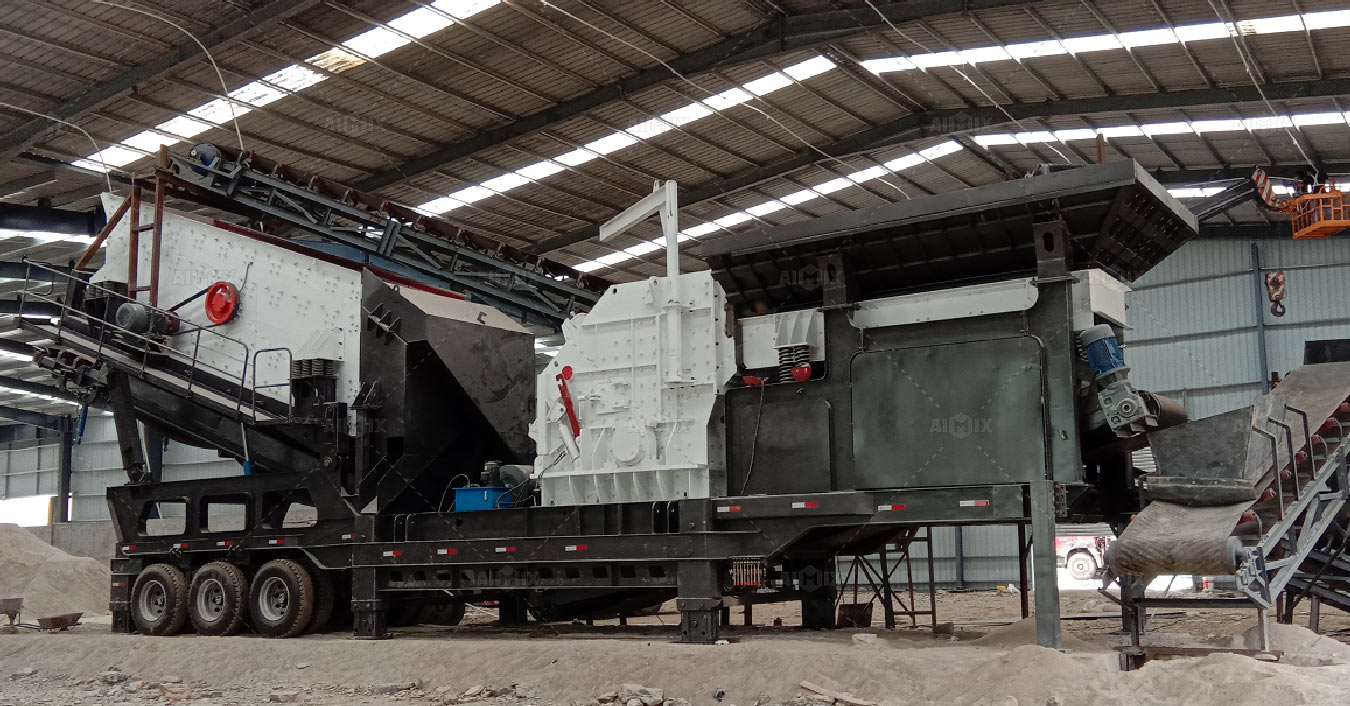Measures for Mobile Stone Crushers to Comply with Environmental Regulations
In the mining and aggregate industry, environmental regulations are becoming increasingly strict to minimize the impact of industrial activities on the ecosystem. A mobile stone crusher is essential for on-site crushing operations, but it must adhere to local and international environmental standards. This article explores key measures to ensure compliance while maintaining operational efficiency, including dust control, noise reduction, and sustainable material processing.
The Importance of Environmental Compliance
Mobile stone crushers(Planta de trituracion movil) play a vital role in mining, road construction, and demolition projects, but their operations can lead to environmental concerns such as:
- Air pollution from dust and emissions.
- Noise pollution affecting nearby communities.
- Waste management issues from byproducts.
- Soil and water contamination due to improper disposal of materials.
To meet regulatory requirements and avoid fines, operators must implement proper environmental control measures.

Key Measures for Environmental Compliance
1. Effective Dust Control Systems
Dust emissions are one of the biggest environmental challenges for a mobile stone crusher. To mitigate this issue, the following measures should be implemented:
- Water Spray Systems: Installing misting systems on crushers and conveyor belts can significantly reduce airborne dust.
- Dust Collectors: Using industrial dust extraction systems helps prevent fine particles from escaping into the air.
- Enclosures and Barriers: Covering transfer points and enclosing crushers limits dust dispersion.
Proper dust control not only ensures compliance but also improves working conditions for operators.
2. Noise Reduction Strategies
A pebble crusher(trituradora de piedra de rio) and other stone crushing equipment generate high noise levels, which can impact workers and nearby communities. Recommended noise reduction measures include:
- Acoustic Barriers: Erecting soundproof barriers around the crusher can help absorb noise.
- Low-Noise Equipment: Using crushers with advanced sound insulation technology reduces noise pollution.
- Regular Maintenance: Proper lubrication and component inspections prevent excessive noise caused by wear and tear.
Implementing these strategies helps meet regulatory noise limits while improving the work environment.
3. Eco-Friendly Fuel and Energy Efficiency
The energy consumption of a mobile stone crusher contributes to its environmental footprint. To reduce emissions, consider:
- Electric-Powered Crushers: Switching to electric or hybrid-powered models reduces fuel consumption and carbon emissions.
- Fuel Efficiency Monitoring: Using automated systems to optimize fuel usage improves sustainability.
- Solar-Assisted Power: Integrating solar panels for auxiliary systems can enhance energy efficiency.
Sustainable energy practices help reduce operating costs while meeting green energy standards.
4. Sustainable Material Management
Efficient processing of materials ensures minimal waste and compliance with environmental policies. Recommended practices include:
- Recycling and Reuse: Crushed concrete and asphalt can be repurposed for road construction and foundation materials.
- Controlled Material Handling: Avoiding material spills and ensuring proper sorting minimizes environmental impact.
- Proper Disposal of Waste: Disposing of non-recyclable waste in compliance with regulations prevents soil and water contamination.
A pebble crusher and other mobile crushers that follow sustainable material management reduce landfill waste and improve resource utilization.
5. Water Pollution Prevention
Mobile crushers can generate runoff that contaminates local water sources. To mitigate this risk:
- Sediment Control Systems: Installing filtration units prevents soil and debris from entering waterways.
- Proper Wastewater Management: Using settling ponds and recycling water minimizes contamination risks.
- Spill Prevention Plans: Ensuring fuel and oil storage is secure reduces the likelihood of leaks.
Taking these measures protects local ecosystems and ensures compliance with water protection regulations.
Compliance with Regulatory Standards
Different countries and regions have specific environmental regulations governing mobile stone crushers. Operators must:
- Stay updated with local environmental laws related to emissions, noise levels, and waste management.
- Conduct regular environmental audits to ensure continuous compliance.
- Obtain necessary permits before starting new operations in sensitive areas.
Failure to comply with regulations can result in fines, operational shutdowns, or reputational damage.
Conclusion
Meeting environmental regulations is essential for the sustainable operation of a mobile stone crusher. By implementing effective dust control, noise reduction, energy efficiency, and waste management measures, operators can minimize their ecological footprint while maintaining high productivity. Adopting these practices ensures compliance with environmental laws and enhances the long-term viability of the stone crushing industry.
